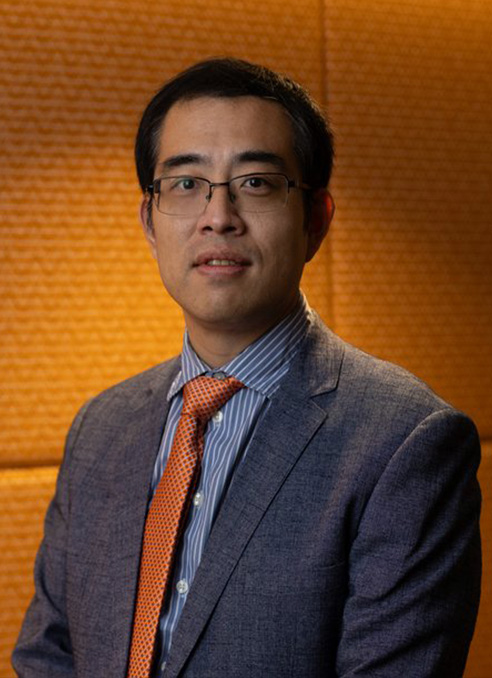Xiaoqian Jiang, PhD
Associate Vice President for Medical AI Chair
Department of Health Data Science and Artificial Intelligence
Christopher Sarofim Family Professorship in Biomedical Informatics and Bioengineering
CPRIT Scholar in Cancer Research Director
Center of Secure Artificial Intelligence for Healthcare (SAFE) McWilliams School of Biomedical Informatics at UTHealth Houston
Department of Health Data Science and Artificial Intelligence
Contact
[email protected] | 713-500-3930
Dr. Xiaoqian Jiang is the Associate Vice President for Medical AI, Chair of the Department of Health Data Science and Artificial Intelligence, and the Christopher Sarofim Professor at The University of Texas Health Science Center at Houston (UTHealth). He also directs the Center for Secure Artificial Intelligence for Healthcare (SAFE) at McWilliams School of Biomedical Informatics. Dr. Jiang is a leading expert in privacy-preserving data mining, federated learning, and explainable machine learning, with over $35 million in grant funding from NIH and other prestigious awards such as the CPRIT Rising Stars and UT Stars. His research spans a range of critical health AI applications, from Alzheimer’s prevention to COVID-19 patient tracking, and his innovative work in human-in-the-loop AI models and computational phenotyping has earned several best paper awards from AMIA. Dr. Jiang's mission aligns with advancing healthcare AI, fostering high-quality education, and improving patient outcomes through AI-driven innovations.
- Tell us about your research center and/or what research/work you are currently working on?
The Center for Secure Artificial Intelligence for Healthcare (SAFE) at UTHealth Houston, directed by Dr. Xiaoqian Jiang, focuses on leveraging advanced AI and machine learning technologies to enhance healthcare outcomes. Our research spans various domains, including predictive modeling, privacy-preserving data sharing, and the development of AI-driven tools for clinical decision support. We aim to empower healthcare with transformative AI, advancing AI to power human health everywhere, and driving AI innovation to revolutionize healthcare.
- What type of student or Postdoctoral Fellow are you looking for to work in your center?
We are looking for highly motivated students and postdoctoral fellows with a strong background in biomedical informatics, machine learning, and data science. Ideal candidates should have experience in programming languages such as Python and Jave, and a keen interest in applying AI to solve complex healthcare problems. They should also possess excellent analytical skills and a collaborative mindset.
- What does the future of your research look like?
The future of our research is focused on integrating AI and machine learning technologies to address critical healthcare challenges. We aim to develop innovative solutions that can efficiently navigate and analyze extensive, complex datasets, identify critical biomarkers, and accelerate the discovery of therapeutic targets. Our goal is to advance the methodologies used in healthcare research, ultimately improving patient outcomes and health care delivery.
- What does the future of informatics look like?
The future of informatics is incredibly promising, with AI and machine learning playing pivotal roles in transforming healthcare. We anticipate significant advancements in personalized medicine, predictive analytics, and the automation of administrative tasks. AI will continue to enhance diagnostics, treatment planning, and patient care, making healthcare more efficient and effective. The integration of AI into healthcare will also bring about new ethical and regulatory challenges that will need to be addressed.
- What courses do you teach?
I mainly teach BMI 5311 at MSBMI at UTHealth Houston: BMI 5311 Foundations II: This course covers the foundational principles of biomedical informatics, including data standards, interoperability, and health information exchange. I gave guest lectures to other courses.
- What major UTHealth Houston departments/institutes do you collaborate with?
We collaborate with various departments and institutes at UTHealth Houston, including the Department of Emergency Medicine, the Institute on Aging, the Stoke Institute, the School of Nursing, the ENT department, and the Department of Neurology. These collaborations enable us to integrate diverse expertise and resources to advance our research and improve healthcare outcomes.
Education
- PhD, 2010, Computer Science, Carnegie Mellon University
- MS, 2006, Computer Science, University of Iowa
- BS, 2003, Computer Science, Shanghai Maritime University
Areas of Expertise
- Healthcare privacy
- Biomedical data mining
- Computational phenotyping
